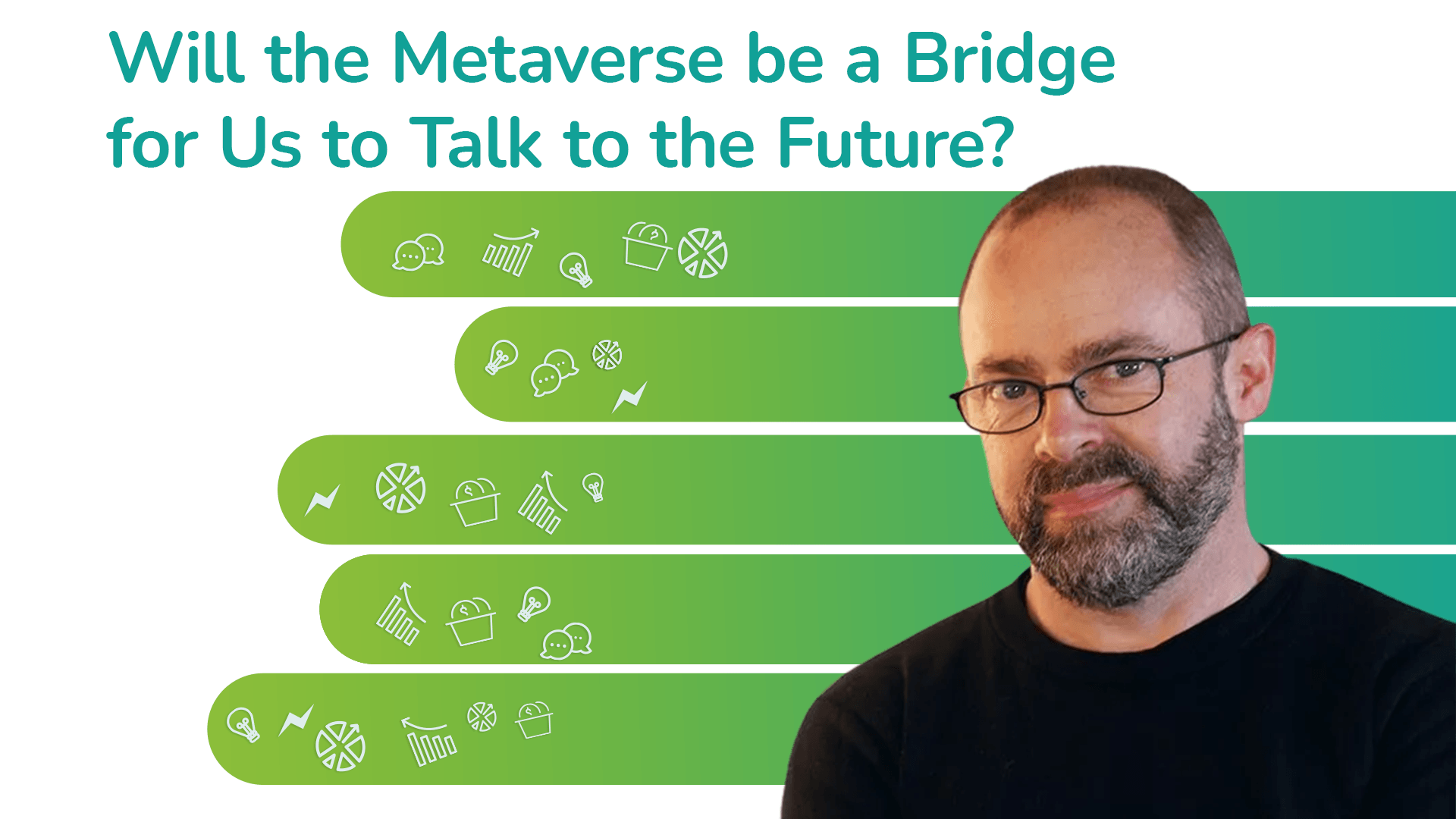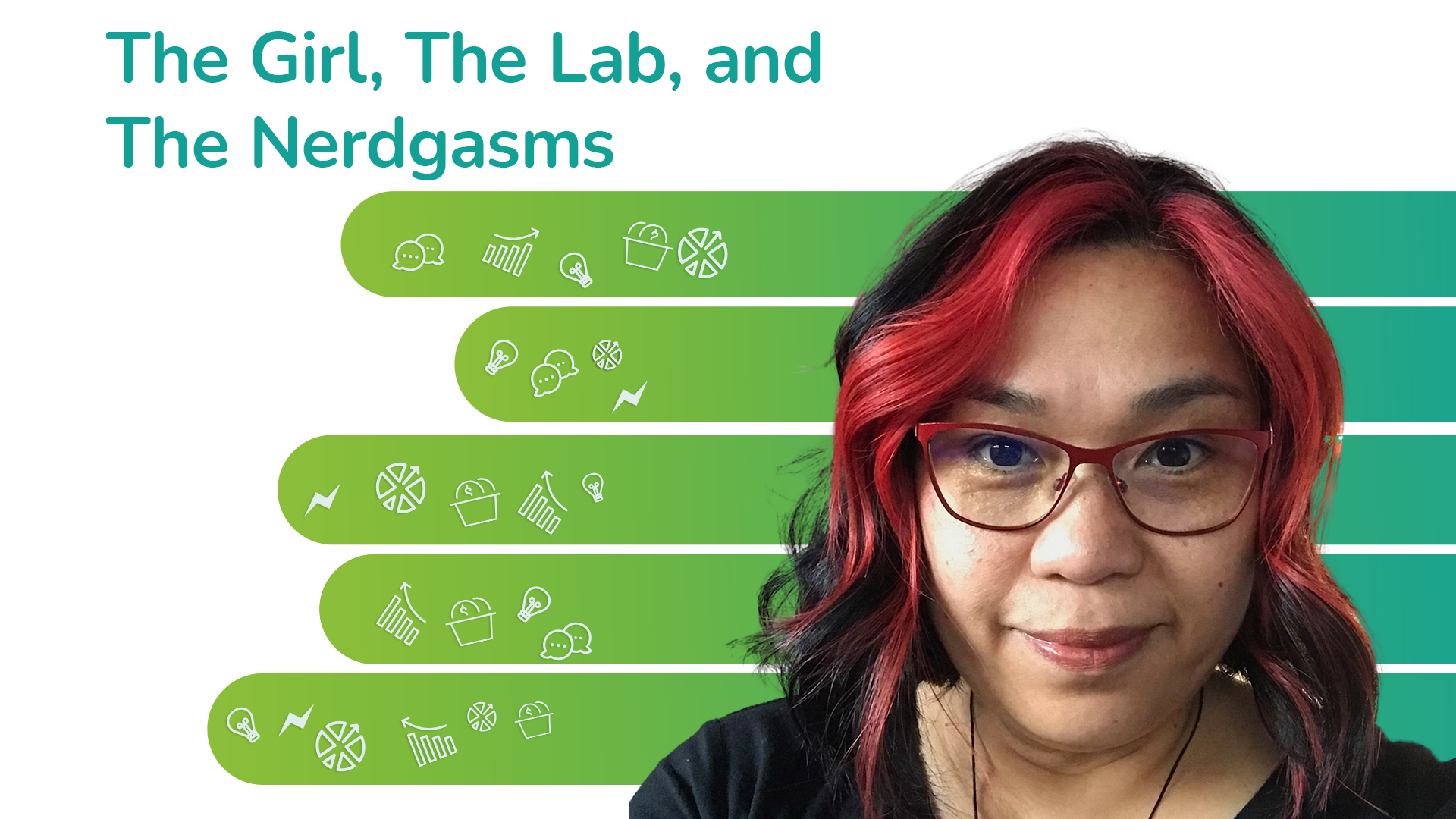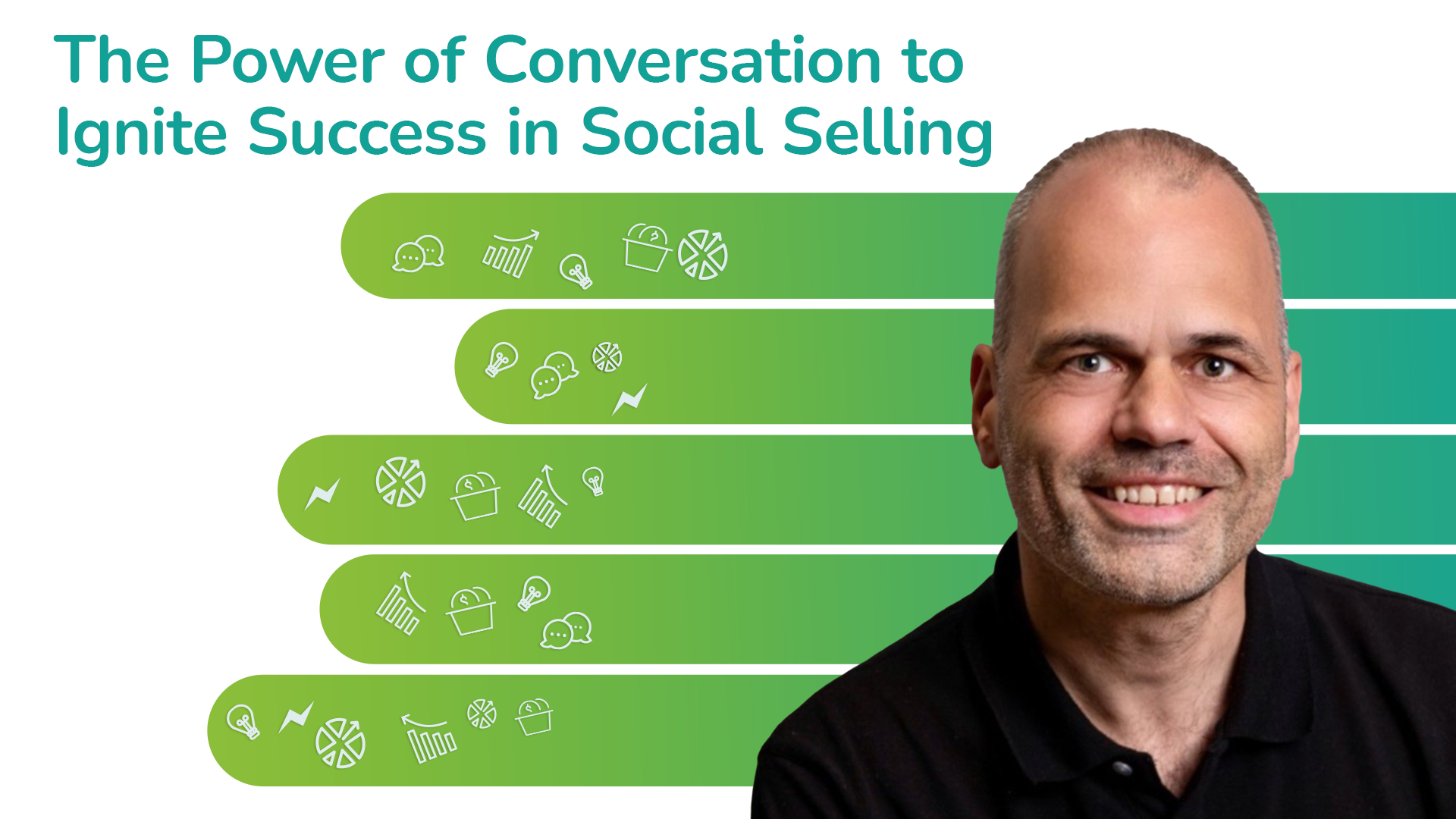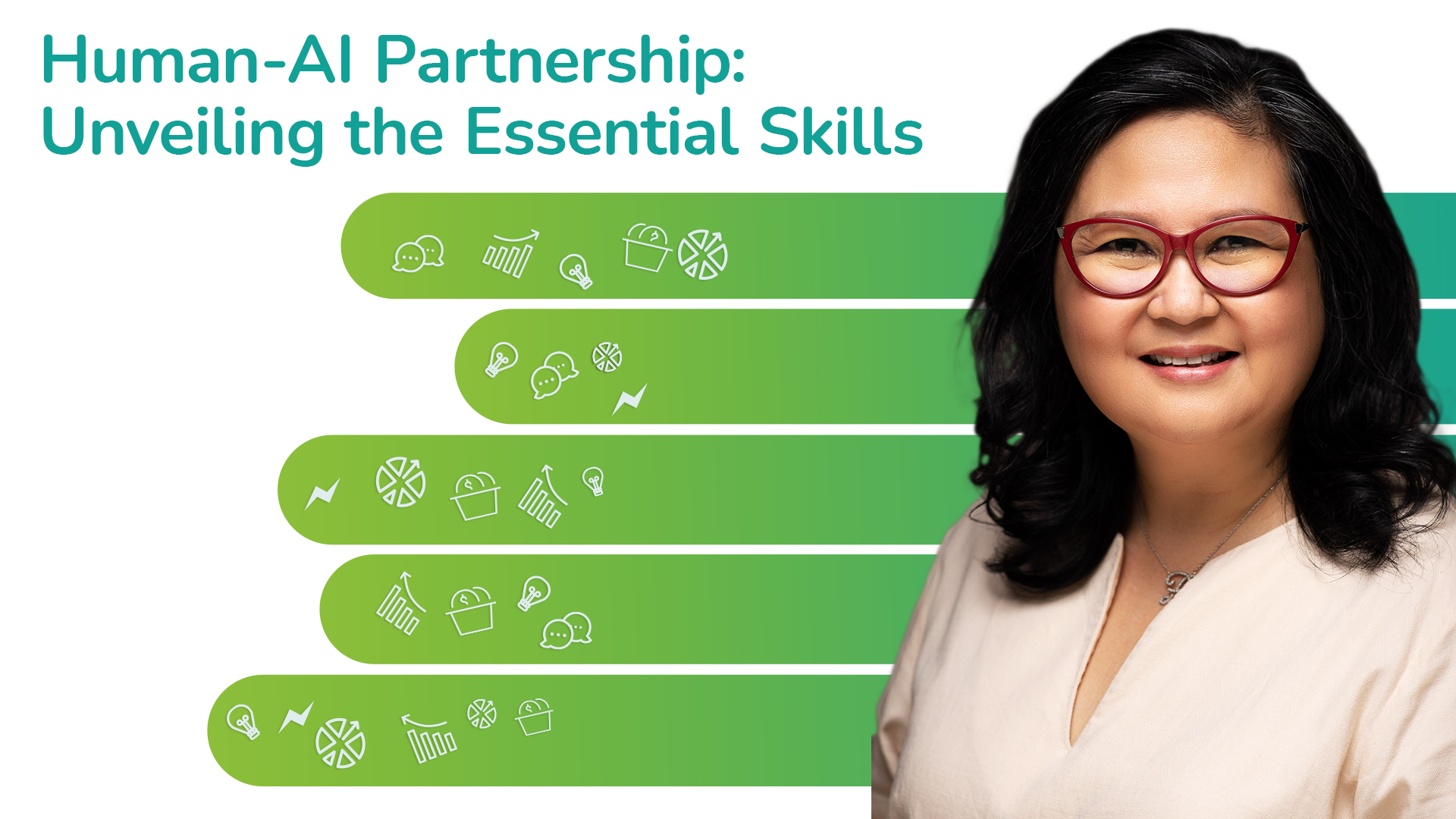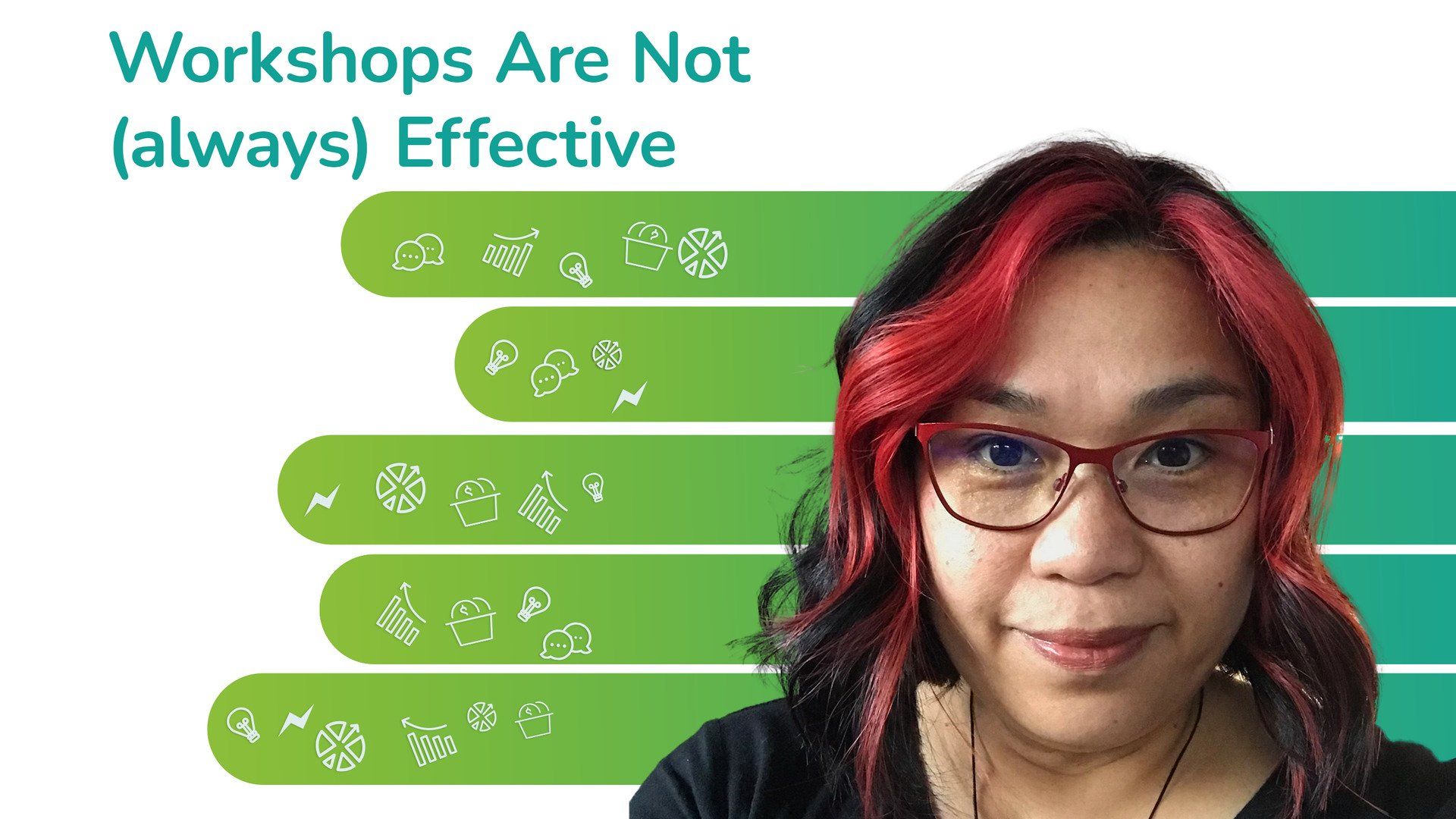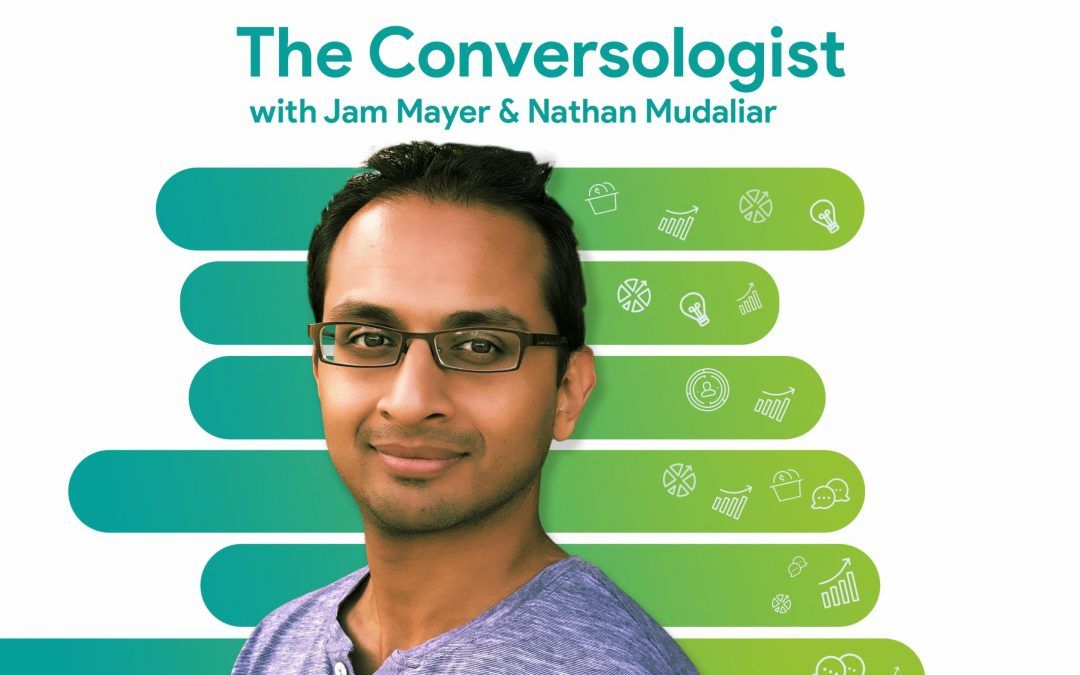
Season 2 Episode 22 | 27 minutes 53 seconds
This is the first livestream edition of the Conversologist Podcast show.
Joining me in this episode is Rebecca Xu, product marketing manager at Opus where we tackle the do's and don'ts when live streaming, harnessing tech to bring out the creativity and audience engagement and more.
Episode Conversation
Topics that were discussed:
- Content Creators that Go Live
- What digital channels or platforms do they stream to?
- What are the challenges content creators face when they go live?
- How to be more comfortable and a little more confident doing live streaming?
- Thoughts on moderation, self-moderation, and external moderations
- Tips on how live streamers can keep their audience engaged and tuned in
- Advice or tips for first-time live streamers
Episode Transcript
Jam
And I think we are live. I think we are live. Are we live? Yes, we are live. Oh, my goodness. I'm nervous as hell for everyone who's looking and watching right now. We are streaming live on LinkedIn and on my personal Facebook profile.
Welcome to the Conversologist Show live stream edition, where we talk about the art and science of conversations in the digital space. We know that technology can be a powerful enabler, but hey, look, communication and emotional connection still need to be at the core. I'm your host, Jam Mayer, and this is, as I said, the first live stream edition of the show. We are usually on audio on Spotify, and I would like to invite you to converse with us.
Joining me today streaming live in San Fran or San Francisco, California, is Rebecca Xu, Product Marketing Manager at Opus. Professional, simultaneous interpreter, storyteller, food lover—I love foods as well—globetrotter—I'd love to know offline, Rebecca, where you've been—and sarcasm connoisseur, I wonder. That's the first term I've ever actually heard. A sarcasm connoisseur. So she loves, anyway, learning new things through reading, traveling, and exploring. And most of the time, you can find her either in an ice cream shop or on her way to an ice cream shop.
So I love ice cream. So it is actually great that we have a guest. And the topic is going live and about live streaming, the do's and don'ts, harnessing tech to bring out the creativity, which is the art, and of course, tech science to engage the audience, and more.
Hello, Rebecca. Thanks for being here.
Rebecca
Of course, I'm honoured and very glad to join your show to talk about live streaming at large. Now I'll try to be as less sarcastic as possible.
Jam
Yeah. Okay, now, cool. Before we actually start with any of the questions, whatsoever, we would really like for people to join us. When I say join, participate, comment, and react, wherever you are, we are live on Facebook, on my personal profile, and on LinkedIn, on my personal profile. So we would love for you to really participate. So you're seeing actually—I'm pointing to the right one—the QR code, which is actually a neat feature, by the way, wherein at any time during this live stream, you can just pick up your phone, use your camera, and then scan the QR code, and then just go through the steps, and it should ask you to record a comment or if you've got any questions and you press submit, it will actually come to us and we'll look at the comments and see, and we might be able to actually show your comment or your question.
So how cool is that? Let's get started.
So, Rebecca, live streaming isn't for the faint of heart. I hate seeing myself on video, to be honest. I mean, I've done live streams before, but I'm not super comfortable. But in your experience, what type of content creators have you worked or partnered with that do live streaming often?
Rebecca
That's a good question. There are many different types of creators that go live. And I guess when we talk about live streaming, a quintessential live streaming creator that will pop up in our minds are gamers who will usually go live on Twitch or YouTube. But increasingly, especially since COVID, I've seen more and more of what I call, or many people call, knowledge creators going live. And by knowledge creators, I mean creators who are passionate about learning new things and disseminating useful or entertaining information to their communities. And in the live streaming world, knowledge creators include so many different types of creators, like all kinds of coaches, including business coaches, leadership coaches, coding coaches, relationship coaches—who I've worked with several—and video broadcasters, of which I think Jam is now one. And I've seen so many more video broadcasters joining live streaming world, and also booktubers—I love booktubers—and, of course marketers. As a marketer, I think a lot of marketers are utilizing live streaming as a way to gain more exposure for their brand and achieve their business goals. Yeah. So increasingly, more and more knowledge creators are entering the live stream sphere and use this as a powerful tool to grow their community and grow their business.
Jam
I'd like to just ask booktubers, did you just say? What are those? Are they the ones that review books? I'm curious because I'm a book nerd.
Rebecca
Yes, booktubers are super creative and community-loving creators who love to share books that they read with their community. And a lot of booktubers would host regular live reading sprints. So a lot of times I would join their live reading sprints and use that time as my designated rating time. Super cool.
What digital channels or platforms do they stream to?
Jam
Oh, gosh. Okay, well, look, see, I learned something today. That's why I love doing this. I've got the next question here. What digital channels or, say, social media platforms do they usually stream to? Is it TikTok, YouTube, Facebook, LinkedIn, or any other stream channels? Or do they do it one by one? Or, like what we're doing now, do they usually stream to different or multiple channels?
Rebecca
That's another great question. I see the majority of creators multistream to different platforms where we call simulcasting. And of course, the reason why they multistream is because the benefits are a lot. For instance, you can expand your reach. You can meet your audience where they are, which is super important, especially in today's internet world where different community members may reside on different social media platforms. And you can also take advantage of each platform. I know a lot of gamers like to stream on Twitch and YouTube because they can use the tipping system to monetize. And for instance, if you are a B2B marketer, then I think you should definitely take advantage of both LinkedIn and YouTube. And speaking of the popular platforms to stream to, I've just mentioned some like YouTube, LinkedIn, and Twitch. Aside from that, there's also Facebook, which I know, Jam, you're currently streaming to, and Twitter, TikTok, or even Instagram. And for your question, which digital channels or platforms do they stream to? There isn't really a one-size-fits-all answer because different creators have different audiences or different preferences. I personally think the choice really depends on two aspects.
First, your audience demographics. As I said, if you're a marketer, then maybe you should choose LinkedIn and YouTube. If you're a gamer, then maybe Twitch or YouTube. And secondly, it really depends on your bandwidth because everyone's time and efforts are limited, and we all know the mentor of quality over quantity. So I think that creators should definitely choose platforms that are most suitable for their goals. And they should always start with platforms where they already have a decent number of followers so that they can have momentum from the get-go.
Jam
Got it. Actually, Discord is another channel that I'm seeing. I know it's very popular first with gamers because I'm on Discord as well. I've got heaps of communities and stuff, and they've got this stage. So it seems like there are some gamers or communities right now who actually prefer to do live or on-stage streaming. And another that I found as well is that there are a few community platforms, like the mighty network and so on. In our lab as well, we stream inside our community versus the public one like this on social media platforms. And it looks like it's getting to be... It's becoming a trend. I see that trend now that if you've got a private community type of platform, not just a text forum, I can actually see them going on stage, so to speak. If you're whoever is listening to this, whether recorded or live, if you know Discord, you can check it out because I actually love the platform. And I guess Opus is on Discord as well, right?
Rebecca
Yes, we can connect to Discord using RTMP. And to build on what you said, I do see a trend of more and more creators streaming to their exclusive inner community, which is super awesome because community is all about establishing and deepening this close and tight relationship with your community members. So yeah, definitely, aside from all the major platforms I mentioned, you should think about exploring some exclusive communities where you can deepen your relationship with your audience.
What are the challenges content creators face when they go live?
Jam
Totally agree. No, love it. It's all about community. Okay, well, next question. What are the... Oh, I'm sure this is a frequently asked question for live streaming, right? So what are the challenges content creators, like myself, face when they go live? I mean, apart from getting really sweaty hands here and trying to get nervous that you don't commit mistakes, but maybe you can just give us a few challenges that you've seen.
Rebecca
I can actually talk for days about all the challenges that content creators face because, unfortunately, live streaming is also doomed by Murphy's law. What can go wrong, will definitely go wrong. I guess in the interest of time, I'll just point out three challenges the creators face before, during, and after they go live. So before they go live, one of the biggest challenges that I often see from creators is that they don't know how to choose the right tool, or they choose the wrong tools. Well, of course, there are already many live streaming tools on the market, and you really need to do your homework and choose the right tool based on your intent for live streams. For instance, if you're a very professional TV producer, then maybe you can use OBS. If you're a gamer, then I personally would recommend Streamlabs, which is amazing. It's integrated with all sorts of amazing third-party tools to spice up your gaming live streams. If you focus more on engagement, then I think Opus is the right thing for you. During the live stream, one of the biggest, if not the biggest, challenge for content creators is that they do not make the live stream an interactive event.
I mean, a live stream is so unique exactly because it's an interactive event. However, due to pressure, a lot of creators' brain would just go blank and they forgot to interact with their audience. Yeah. They have to remember that live streams are two-way dialogues that are intended to create a personal connection between the creators as well as the audience. And the last challenge which happens after a live stream is that a lot of creators just forget to repurpose the content, which is the live streams. I perceive live streams as great top-of-funnel content that is extremely versatile in the sense that you can turn live streams into almost all kinds of assets like podcasts, blog posts, infographics, and short videos that you can post on so many different platforms for you to gain extra exposure. This is especially important in today's fast-moving world. How can we achieve more by doing less? And content repurposing is definitely one way to help creators achieve more by doing less. Yeah. So these are three challenges that I often see creators have.
How to be more comfortable and a little more confident doing live streaming?
Jam
No, that's awesome. It's interesting that you mentioned engagement and the two-way conversation, right? And that's what the show is all about. We actually have one or two video comments that they've submitted through the QR code. I'm just pausing here to anyone who is actually joining us right now live. You do see that QR code somewhere, either on your left or right, depending on where you're looking at, right? All you have to do is actually go and use your camera and scan the QR code, and then it goes through the steps and you can submit your video content, and we're going to actually see it here on the platform. So we do have one question from Amanda. Let me play that. "Hey, so I'm not very comfortable doing video, let alone live video streaming. So do you have any advice for me on how to be a little more confident?"
Rebecca
That is a great question. And to be honest, it's also a very challenging question. I always try to answer it. I think my only advice would be to don't overthink and just give it a try. From my personal experience and based on my conversations with hundreds of creators, I think this discomfort comes from here. It's a psychological effect. A lot of times, you're uncomfortable because you just worry too much and think too much. You may think that, Oh, it would end up like a disaster. Oh, other people would judge me if I did this or that wrong. However, as I said, most of the things are just overthinking. It's just in your brain. A lot of times, it won't happen. My suggestion is to just give it a try. Don't overthink. Worst case, I don't really think there is any worst case, but worst case, your live stream will just be a happy record of your first step towards becoming a live streaming guru.
Thoughts on moderation, self-moderation, and external moderations
Jam
Awesome. Well, Amanda, I hope that actually answered your question. And I think we've got one from... I'm just scrolling through here. "Hi, I'm Rew. I have a question about moderation. Given what we know about the kinds of things that have and undoubtedly will again be live streamed, what are your thoughts on moderation, self-moderation, external moderation? What's the best balance, and how does that work?"
Rebecca
This is an amazing question. Content moderation is definitely one of the biggest topics over the past few years. It's definitely very important for live streamers, especially live streamers who have a huge amount of fan base and with hundreds or even thousands of comments coming in within an hour of live streaming. To be honest, I am not an expert in content moderation, but based on my experience giving advice on how to moderate your live shows, I do see some good practices. The first is that there are already a lot of mature third-party bots that you can download and integrate with your streaming platforms, for instance, YouTube or OBS, and use bots as an auto moderator. I think this is the most widely used way for content moderation. And second, if you have a producer, then you should definitely utilize your producer as a manual or a human moderator. However, not everyone has the luxury of having a producer. So if you think you are a very professional live streamer who can multitask, then maybe you can also help yourself. And lastly, and this is something that I see from several creators who have a very tight-knit community, many community members would volunteer to be moderators to help make sure that no bad comments would come into the live shows. I hope that answers your question. I'll also definitely do my homework and maybe give you advice later on.
Tips on how live streamers can keep their audience engaged and tuned in
Jam
No, that's awesome. Thank you. I'm just going to pause and see if there are actually any other video comments coming in or text comments, etc. Cool. Awesome. So here's my next question. So do you have tips on how live streamers can keep their audience engaged and tuned in—art and science meaning tech or the creative side?
Rebecca
That's a great question. You're always asking great questions.
Jam
Well, thank you.
Rebecca
For tips on how to engage with live streamers, there are already a lot of tips that creators can learn. The first tip is that you have to always remember to engage with your audience. I know it sounds funny, but a lot of creators forget to engage with the audience during a show because live streaming can be really stressful. And as I said previously, under stress, your brain would just go blank, and you would just start a one-man show and talk on your own. Unless you're Beyonce or Taylor Swift, I'm pretty sure that your audience would love for you to only talk. Unless you're dumb, I think you should definitely remember to engage with your audience. My practice is that before the start of the show, I just write down all the ways of engagement that I want to use to interact with my audience. I would also specify at which point of the show I want to use that ways of engagement. And I would put that note in a very obvious place so that I wouldn't miss it, even if I was super nervous. Another tip is that, as you mentioned about how technology will enable or help creators become more creative and engage with their communities more, you should definitely choose a great tool.
I've heard a mantra or a saying that goes to the extent that how good you perform or how good you are is to a great extent determined by the tools that you use. So you should definitely choose a tool that either has engagement tools or can be integrated with third-party engagement tools. And at Opus, we are very focused on developing engagement tools to help creators engage with their audience and grow their fan base. And our most loved engagement tool is actually called Emoji Ring, which is an AI smart tool that automatically grabs all the emojis from the chat box sent by your audience and shows them in the form of the following emojis. It's super fun, and I encourage every creator to check it out and see if it helps with engagement. And lastly, my tip would be to always analyze your engagement and see what works and what doesn't work. You may have hundreds of bells and whistles for engagement, but only 10 or even one of them work. So always analyze your data. And if one thing works, for instance, if you host a poll and it really works, then maybe you should do more polls for your upcoming shows.
Jam
Interesting. I'm not so sure; I'm not obviously looking at the live stream, et cetera. So I'm not so sure how many are actually live. I mean, we can do a poll, but are we able to actually show the emoji right now? It's really interesting. Or it is obviously dependent if anyone has reacted at all during the live stream.
Rebecca
Let's see if we have any Facebook viewers who can drop some emojis and let us be amazed by it.
Jam
Yeah, cool. While we're waiting, we'll see. So if you are hearing us on Facebook, if you are on Facebook, I think all they have to do is basically all the reactions. So if it's a like, or a heart, and so on, and then to have the emojis rain down—I guess that's the way of seeing it. I actually love that. Love, love, love the emoji rain. We get to actually show that. Cool. Awesome.
Advice or tips for first-time live streamers
Jam
There is another question here. Hang on. There is another, and I think you've already answered this earlier, there was another video question from Amanda, which is for first-time live streamers and advice and tips. Should we show that comment, Rebecca, probably? "Okay. So for people who are doing live streaming for the very first time, do you have any advice or tips to get them started?"
Rebecca
In the interest of time and also in the interest of not overwhelming first-time live streamers, I would just give two tips. First, as I said, briefly mentioned previously that choose the right live streaming tool. However, do not get infatuated with professional setups. I've talked with a lot of first-time live streamers who are so determined to find the best cameras and the best mics even before their first show. Almost as if once they get the best camera and the best mic, they will become the best live streamers, which can be true. However, most of the time, you don't really need a super professional setup in order for you to become a great live streamer. What's really important is having a decent or the right live streaming tool, plus your ingenuity as well as your creativity, and more importantly, your willingness to start a successful live streaming show. And secondly, I know it sounds very corny, and so many people have been mentioning it, but indeed, practice makes perfect. Even now, I'm still nervous. But two years back, I was super bad at facing the camera, and start chatting with people online.
And practice definitely helps me to be more comfortable with the camera and share my thoughts in front of a lot of people. So definitely practice, practice, and practice. Oh, my God.
Jam
Oh, there's actually... Yeah, I would love to show that meme, by the way. Yeah, no, that's awesome. And just look, I came from theatre as well back in the day. And live streaming is like, I guess, theatre as well, because unlike on TV shows or movies, you can just go, "Cut." Okay, let's redo. But on a live stream, you can't. It's interesting that you mentioned about practice, practice, practice, because when you're live, that's it. Anything can happen. And it's just what we were taught to train ourselves to do really great improv, like improvisization. So just in case it doesn't go based on the script, you have to be just in a snap as much as possible and try not to really show that you're like, Oh my gosh, hang on, nothing's working. But hey, look, that's why I guess I love live streaming versus a video because with a video you tend to be a little complacent and you go, Well, I can do it 10 times over and make it as perfect as possible. But with live, that's it.
Rebecca
Another practice I just thought of is that you can record yourself and see second by second where it goes wrong and where it's not going wrong. It goes right. I'm still an interpreter, but when I was practicing during S school, our professors required us to record our interpretation and listen to our interpretation. I mean, listening to your sound, it's not comfortable, to say the least. However, that helps me a lot in becoming a professional interpreter because I know what goes right and what goes wrong. So maybe record yourself, and I know that it can be a little bit cringy to see yourself live. That will pay off. That will pay off.
Closing and Stay Tuned
Jam
Well, that's it for today's show. We keep it short and sweet. Thank you again, Rebecca, so, so much for sharing and supporting this live stream today and for actually giving me and other future content creators the opportunity to harness world technology for our creative pursuits, so to speak. Yeah. No, thank you so much, Rebecca. Really, really loved having you today, and thanks for the insights as well. And of course, thank you to everyone who is here live, or if you're watching this recorded, look, there is still that QR code that you're seeing over there. Go ahead, scan it. If you've got other questions, they are going to be saved and sent to us. And on my next episode, I'm going to pick some of those video comments, and I would love to actually answer them, or have another guest, or maybe have Rebecca back again.
Rebecca
I can also want to get video comments to respond to their video comments.
Jam
Yeah, exactly. That would really be cool. Right, exactly. So just in closing, stay tuned for more guests. Believe it or not, I am going to do this a little bit more with some guests, probably just me talking and doing a monologue with you, of course, helping me converse and ask your questions. And we'll just have that conversation going around digital tools. I love really just focusing on digital tools. I don't know. I've just been doing it for years and years, and it's been a while, and I really want to do it again. It's my happy place. I'm really interested in going live or doing some videos in terms of the metaverse for work, not necessarily for gaming. I'm a gamer, so metaverse for work. I'd love to talk more about that. And of course, the most talked-about topic right now is AI, not necessarily chatGPT. It could be included. But there are other AI tools out there, and I tell you, the platform that I'm using right now has a little bit of AI when it comes to needs and stuff. So if you would like to be part of this show, please send me a private message on Facebook or LinkedIn.
Hit that follow, or, as they say, the bell, to be notified of the next episode on your preferred social platform. We're also on Spotify if you love audio, and you can subscribe to our show on your favorite podcast app. So thanks again, everyone, for listening and spending your time with us. And remember to keep the conversation going.

